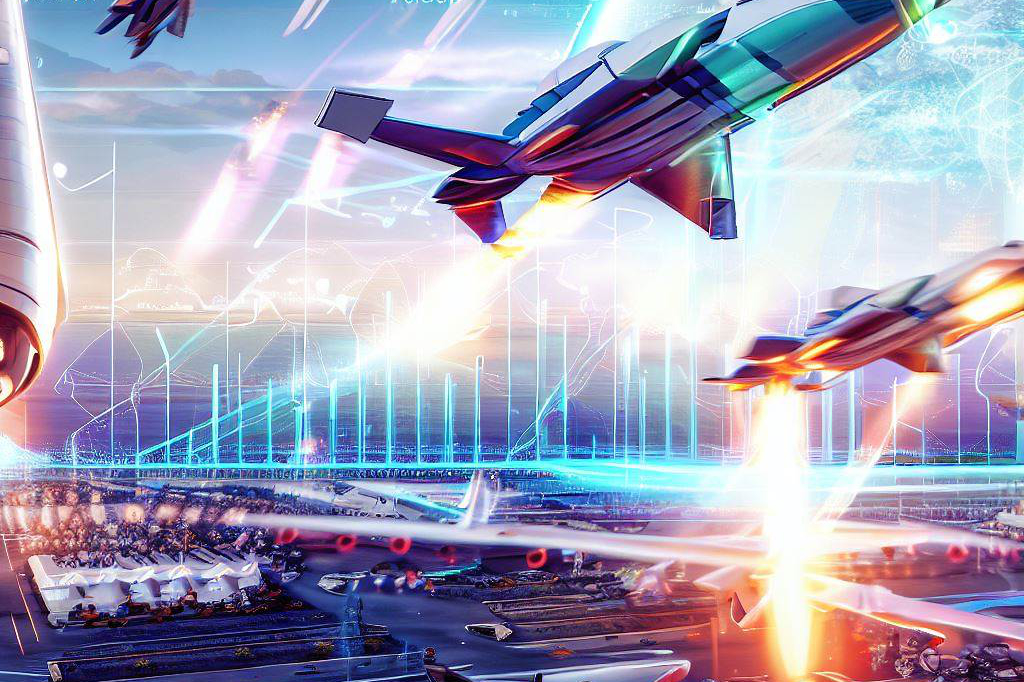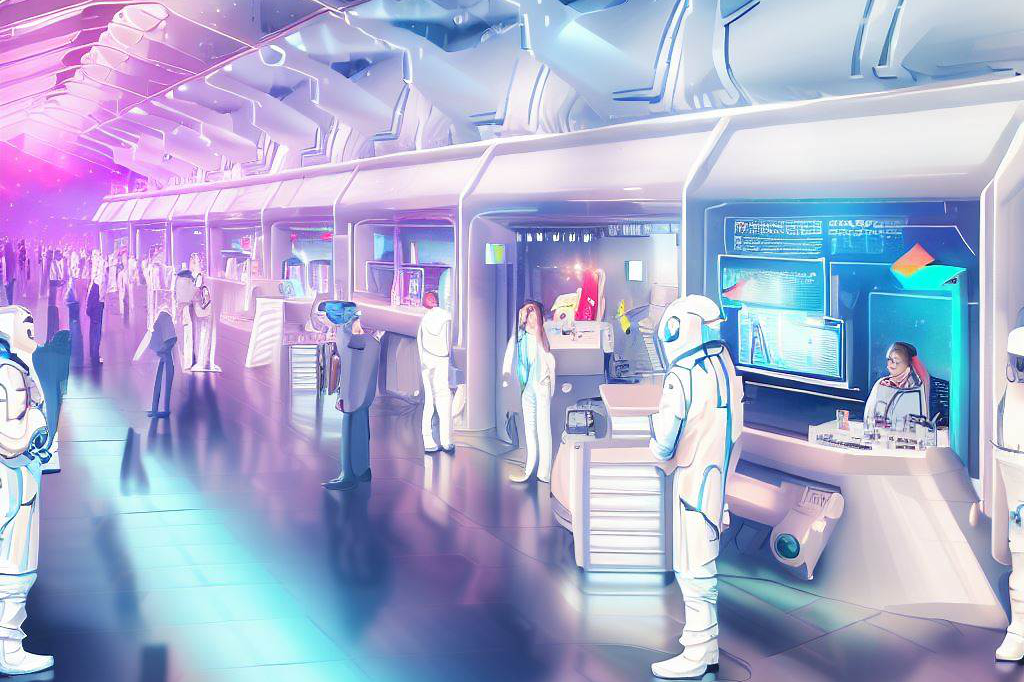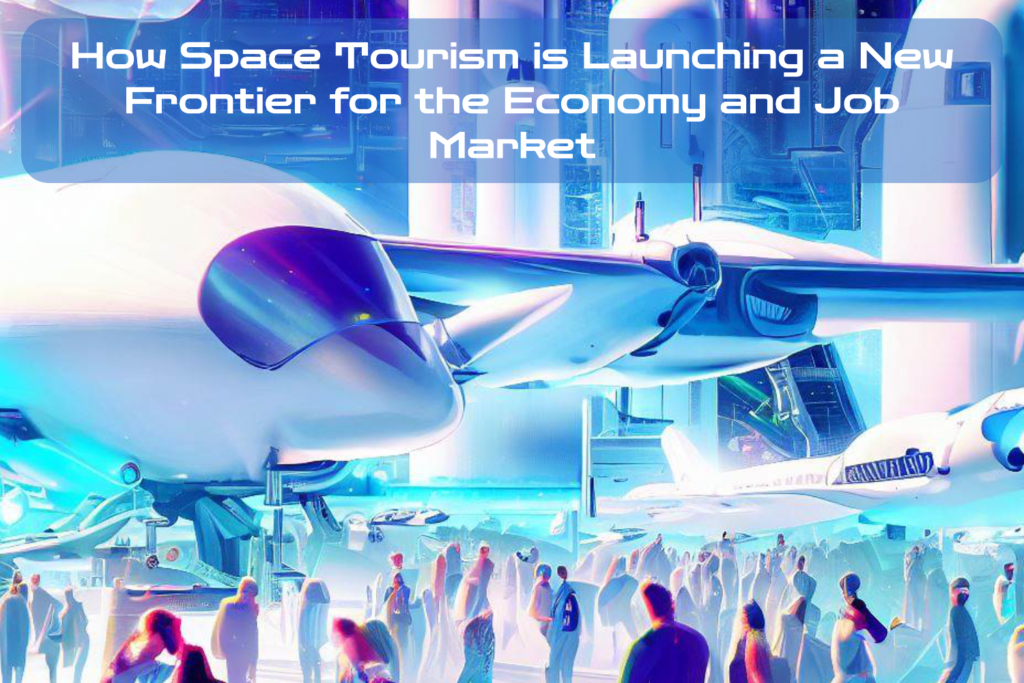The Future is Here: Space Tourism
Space tourism is no longer a thing of science fiction, but a reality of the present. In recent years, private companies such as Virgin Galactic and SpaceX have been making strides in the development of space tourism, with tickets already being sold for future journeys. The idea of ordinary citizens traveling beyond Earth’s atmosphere and experiencing what was once reserved only for highly trained astronauts is an exciting prospect that has captured the imagination of people all over the world.
The Growing Popularity
The popularity of space tourism has been steadily increasing in recent years. The idea was first introduced in the early 2000s, but it wasn’t until more recently that it became a viable option.
Celebrities such as Justin Bieber and Leonardo DiCaprio have expressed interest in going to space, helping to spark public interest further. With more companies entering the field and offering various options for space travel, from suborbital flights to orbital stays at a hotel in space, there is something for everyone who dreams of seeing Earth from above.
Impact on the Economy and Job Market
Space tourism has the potential to greatly impact not only our sense of adventure but also our economy and job market. As more companies invest in this industry, we can expect growth in related sectors such as aerospace technology and hospitality.
The increase in revenue will not only benefit these industries but also create new business opportunities, such as souvenir shops or food vendors at launch sites. Furthermore, the growth of space tourism will lead to an increase in jobs directly related to this industry.
Skilled workers such as engineers and pilots will be needed to design and operate spaceships, while astronauts will be required to guide tourists through their journey. Hospitality-related jobs like tour guides or hotel staff will also see growth due to this development.
Overall, it’s clear that space tourism has the potential to revolutionize not only our perception of space but also our economy and job market. As we continue to explore this new frontier, it’s important to recognize the impact it could have on our lives and begin preparing for its future growth.
Economic Impact of space tourism

Increase in revenue for space-related industries
Space tourism has the potential to inject a significant amount of money into various industries, particularly those involved in aerospace, technology, and hospitality. Companies like SpaceX and Virgin Galactic have already attracted investors from all over the world who see the potential for profit.
These companies are responsible for creating jobs related to developing the technology and infrastructure necessary for commercial launches. In addition to companies that directly produce or support space travel, there will likely be other businesses that will benefit from space tourism.
For instance, souvenir shops could sell memorabilia related to the tourists’ experiences in space. Clothing retailers might create specialized space apparel or merchandise related to astronauts or their missions.
Boost in local economies near launch sites and tourist destinations
The economic boost offered by space tourism will not only be limited to established businesses that deal with services or products used by travelers; it can also affect local communities where launches take place.
These areas may experience an increase in demand for services such as hotels, restaurants, transportation services, and even increased property values due to increased demand. In fact, some cities have already started preparing for what is expected to come.
Spaceports around the world are working on master plans for new facilities that include hotels and other amenities such as museums where visitors can learn about astronomy or even participate in simulated flights. The impact of these developments could be profound, as a lot of money can enter local economies from tourists looking for an unforgettable experience.
Creation of new business opportunities
The development of commercial human travel into outer space presents endless possibilities beyond those currently known today, ranging from markets such as basic supplies and essential commodities necessary during extended stays outside Earth’s atmosphere (food water etc.) as well as entertainment options – including casinos – along with fewer regulations than found on Earth due largely due to a lack of jurisdiction. This is a huge business opportunity for entrepreneurs who can think creatively about how to capitalize on the growing demand for space tourism.
One of the biggest business opportunities is space hotels. The idea of sleeping in zero gravity with a view of the Earth from above is alluring to many people.
Space hotels have already been proposed by various companies, and some even plan to start construction within the next decade. These will offer an entirely new and unique experience, which will definitely attract more tourists to orbit above our planet.
All in all, space tourism has the potential to greatly impact not just the economy but also individual lives across different economies around the world. As we see more private enterprises investing in space exploration, it’s clear that this industry is not going anywhere anytime soon.
Job market impact of space tourism

Growth in demand for skilled workers in the aerospace industry (e.g. engineers, pilots)
Space tourism is not just about sending wealthy tourists into space. It’s also about building the spacecraft, launching them, and getting them back to Earth safely. This requires a significant amount of engineering expertise and skilled labor.
As more private companies enter the market, the demand for aerospace engineers and pilots will only continue to grow. Aerospace engineers are responsible for designing spacecraft that can withstand the rigors of space travel while also ensuring they have all the necessary systems to keep passengers safe and comfortable.
Pilots will need specialized training to fly spacecraft into orbit and then return them safely to Earth. As space tourism becomes more popular and accessible, companies will need more skilled workers to design, build, operate, and maintain these vehicles.
Increase in jobs related to hospitality and tourism (e.g. tour guides, hotel staff)
Space tourism isn’t just about flying into space; it’s also about experiencing all the unique aspects that come with it. This includes tours of launch facilities, astronaut training centers, and even zero-gravity simulators.
Moreover, tourists visiting sites like Cape Canaveral may want to spend time exploring local areas or staying in nearby hotels. This means there will be an increase in job opportunities for people who have experience in hospitality services, such as waiters/waitresses, chefs, or hotel staff, who can provide high level service during their stay on the ground before their launch date.
Development of new job opportunities as a result of technological advancements
As technology continues to advance at a rapid pace with regard to space travel, we can expect new jobs being created specifically tailored around this industry niche from
- scientists developing new materials that can withstand extreme conditions found outside Earth’s atmosphere;
- technologists working on augmented reality technology which will provide visitors a more immersive experience as they explore space and new planets;
- medical researchers developing new treatments for space sickness or radiation exposure problems.
As private companies continue to stake new claims in the industry and explore the uncharted territories beyond our planet, they will likely create more job opportunities in fields we can’t even imagine yet. The potential for growth in this area is practically limitless, making it an attractive option for anyone looking for an exciting career path.
The Challenges of Space Tourism

Space tourism is a promising and exciting industry, but it still faces numerous challenges as it continues to grow. These challenges come in many forms, including the high costs of developing infrastructure for commercial launches, safety concerns for passengers and crew members, and regulatory issues related to international laws governing outer space.
High Costs Associated with Developing Infrastructure for Commercial Launches
One of the most significant challenges facing the growth of space tourism is the high cost associated with developing infrastructure for commercial launches. Launching a spacecraft requires massive amounts of resources, such as fuel, technology, and manufacturing processes, that can add up quickly.
This means that only a select few companies have been able to invest in creating spacecraft or building launch pads. Moreover, even if companies can afford this investment initially or secure funding from investors or governments, they may not be able to sustain their businesses without enough customers willing to pay the high prices required to cover these costs.
Safety Concerns for Passengers and Crew Members
Another challenge facing space tourism is ensuring safety measures are put in place for passengers and crew members during launch and while onboard spacecraft.
Astronauts undergo intense physical training programs before undertaking any space mission; however, tourists may not necessarily have this experience or level of preparation. This raises concerns about how well-equipped they are to handle emergencies like sudden depressurization or extreme G-force experiences during launch.
Regulatory Issues Related to International Laws Governing Outer Space
The final challenge facing space tourism is regulatory issues related to international laws governing outer space operations.
Space law is complex and varies widely across countries, which can make it difficult for companies operating across borders. This could lead to conflicts over who has jurisdiction over what areas of operations, including potential legal disputes over accidents or damages incurred during flight operations between different countries’ jurisdictions.
Despite its promising growth prospects, space tourism faces numerous challenges. High costs associated with developing infrastructure for commercial launches, safety concerns for passengers and crew members, and regulatory issues related to international laws governing outer space must all be overcome if the industry is to realize its full potential.
Addressing these challenges will require close collaboration between companies in the industry, governments around the world, and other stakeholders. With such collaboration, space tourism can continue to grow into a truly global industry with significant implications for the economy and job market.
Final Thoughts:

While there are challenges that must be overcome before space tourism can become a reality on a large scale, I believe that humans will make it happen one day. Once it does become accessible to all who desire it, we can expect a significant boost in revenue streams for our terrestrial economies and a plethora of new jobs worldwide.

C M, a seasoned editor, journalist, and consultant, is deeply fascinated by the convergence of technology, space, and the future of humanity.
With a particular interest in transhumanity, futurology, and the philosophical and ethical dimensions of these domains, C M serves as the lead contributor to SpaceSpotlight and TranscendSphere.
When not penning insightful articles on these rapidly evolving fields, C M indulges in their love for podcasts and books, proudly embracing their status as a ‘Happy Nerd Extraordinaire!’



